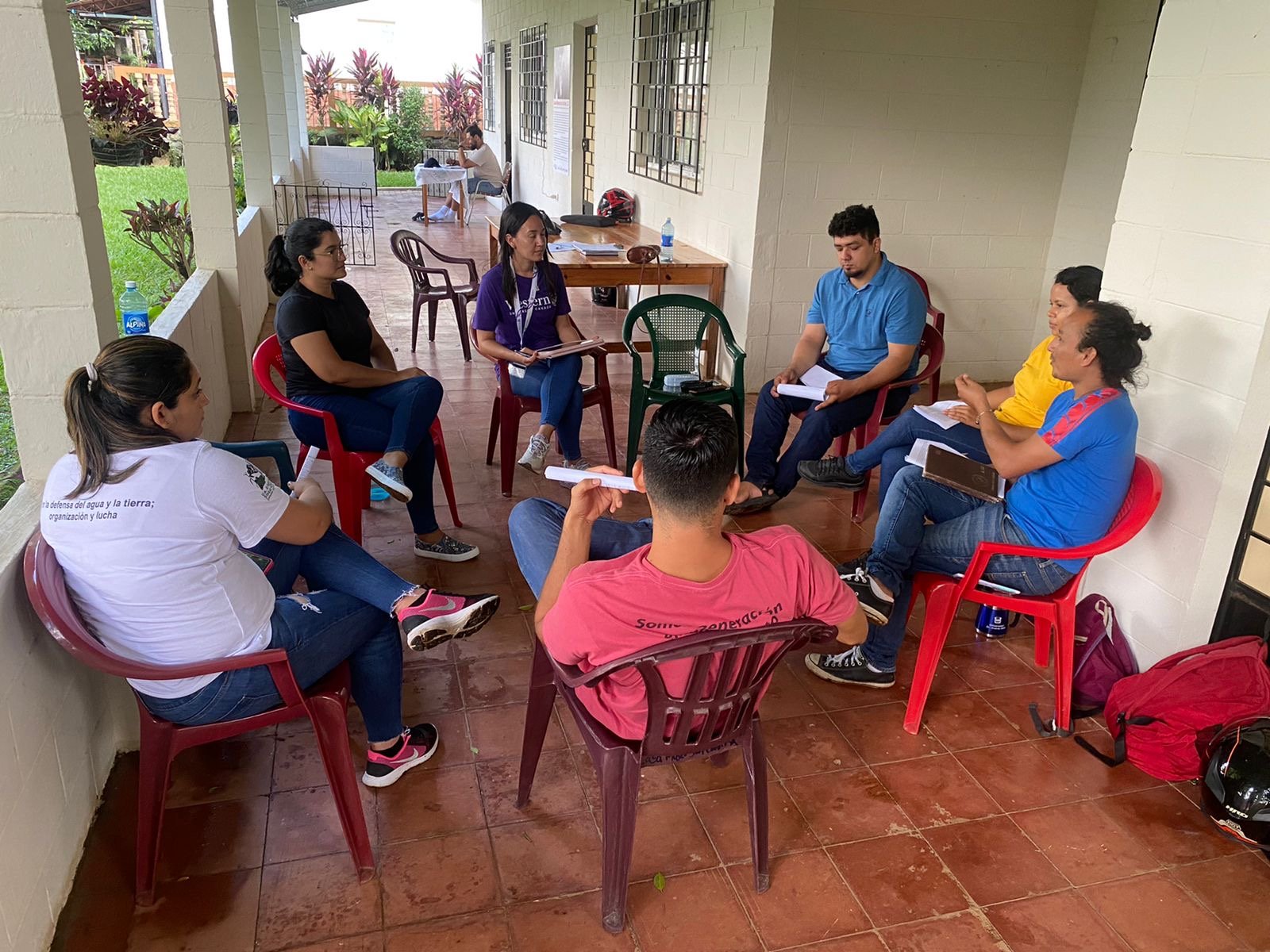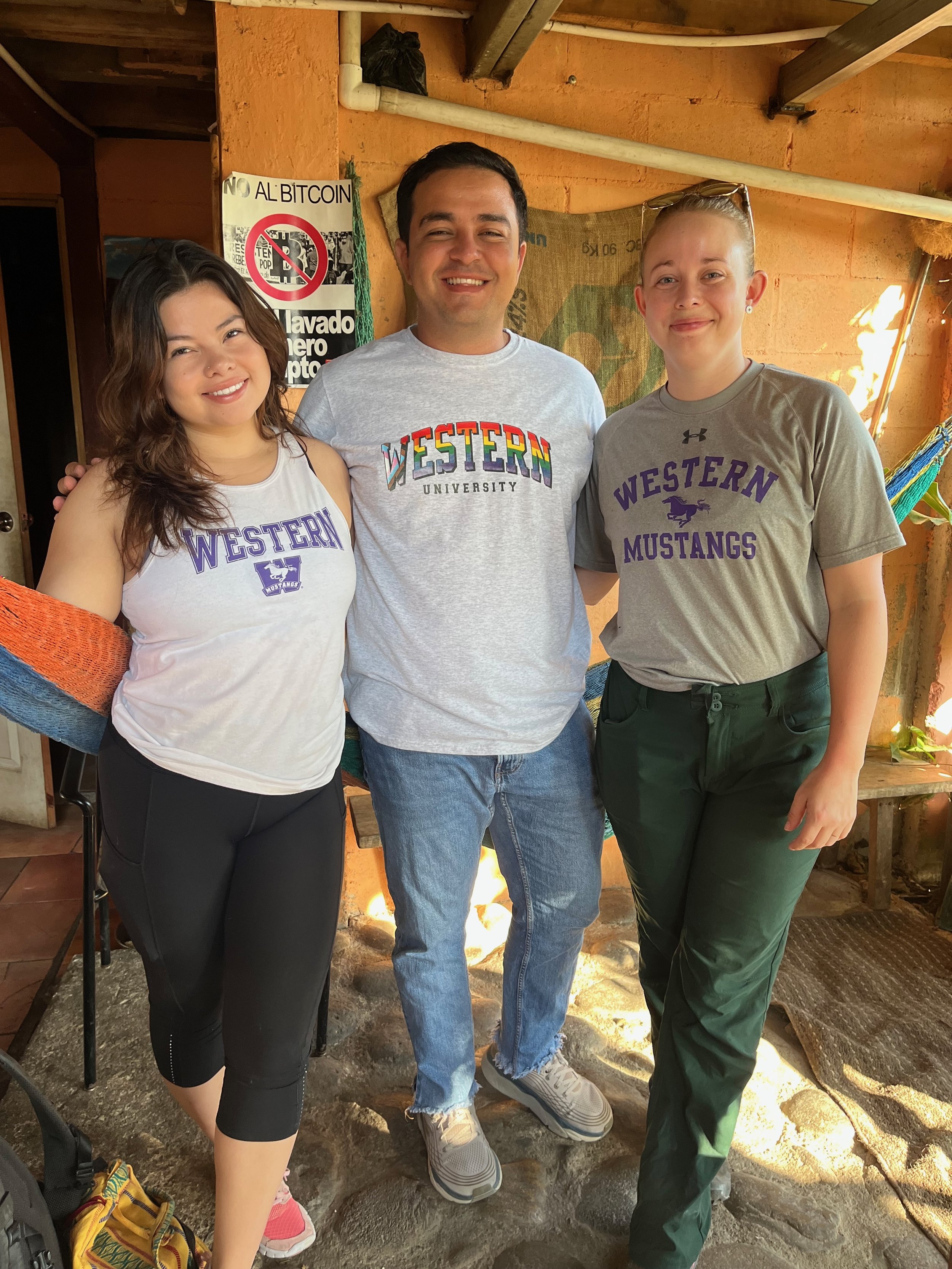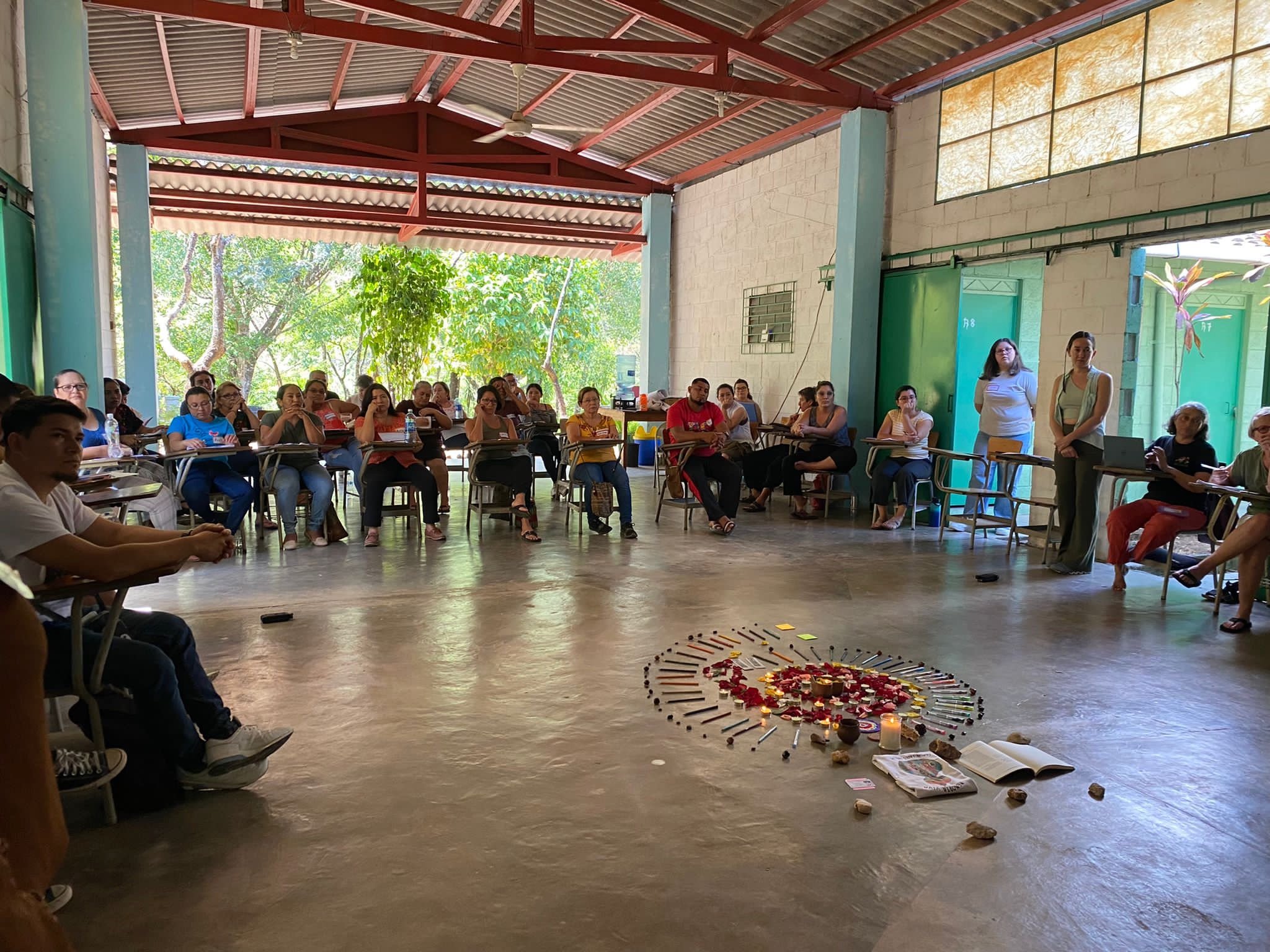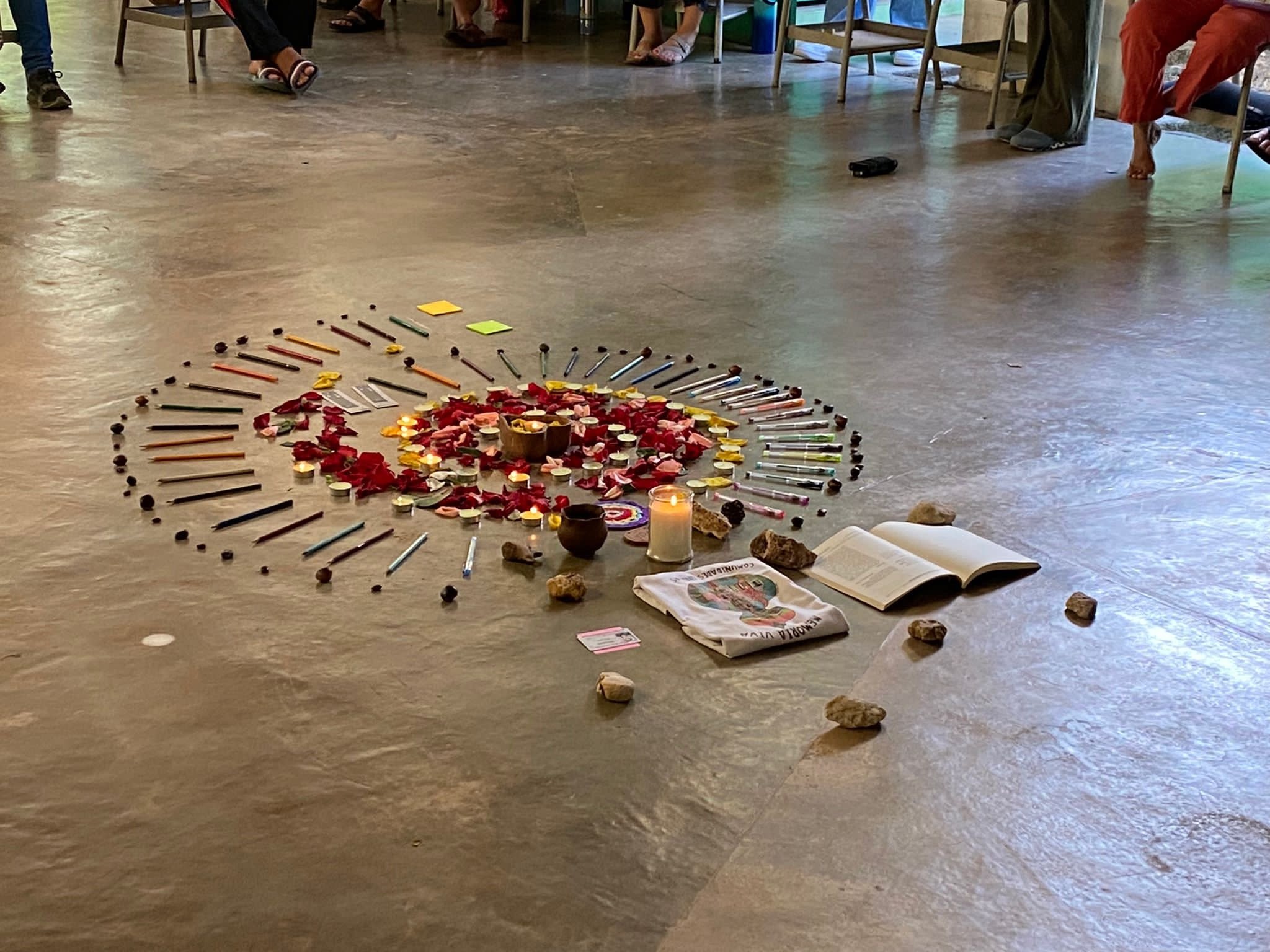Mental Health and Healing
Mental Health and Healing is one of the core research themes of the Surviving Memory in Postwar El Salvador initiative. Since 2017, the team has actively engaged with psychologists, social workers, psychiatrists, mental health associations, and community health promoters about how historical memory work can contribute to individual and collective postwar recovery. We have conducted two mental health need assessments (2017 and 2023), held a national conference on trauma and postwar mental health (2023), and worked closely with Asociación de Capacitación e Investigación para la Salud [Mental Health Training and Research Association, ACISAM], to provide supports for survivors at events and during fieldwork. The team believes that a participatory approach to historical memory work can begin to collectively address processes of healing and reconciliation that are neglected by the Salvadoran state. Indeed, as Chávez (2016) notes, “the particular needs of women, elderly people, orphans, and widows, as well as those who suffered the psychosocial impacts of the civil war, were not considered in the national reconstruction plan included in the peace accord” (211).
Substance Use Disorder and Mental Health
Salvadoran Community Psychologist, Fernando Chacón (MSc Student in Psychology, Western University) and Dr. Jesús Chavarría (Assistant Professor of Psychology, Western University) are in the process of launching a study focused on substance abuse disorder in rural Salvadoran communities that are continuing to recover from the war. The study focuses on effective treatment, community interventions, and understanding pathways to care.
Global MINDS Collective: Mindful Social Innovation and Mental Health in Chalatenango
In El Salvador, the consequences of the war, the post-war legacy, and the security problems that have arisen from the recent gang crackdown have resulted in a wave of social violence that has affected individuals and communities both physically and psychologically. Addressing these wounds caused by violence requires an urgent need to implement mental health interventions in family, educational, community, and work settings that promote healing and reconciliation in affected communities. As part of the Surviving Memory initiative, The Global MINDS Collective (GMC) is leading efforts related to mental health and healing, one of the eight core themes. GMC is a Canadian charity whose vision is to create a world of meaningful opportunities for flourishing mental health and well-being. To do this, GMC champions the Mindful Social Innovation (MSI) pedagogy to educate, connect, and mobilize people to co-create mental health innovations for local, international and Indigenous contexts.
MSI is a nontraditional approach to addressing various challenges within the mental health system. It involves two simultaneous processes: self-transformation and system transformation.
● Self-transformation (also known as transformative self-growth) is the process of deepening one’s self-awareness and understanding of one's current state internally while also experiencing optimism and commitment to imagining and striving to achieve what could be.
● System Transformation is a continuous and essential process for supporting the evolution of societies by promptly addressing evolving needs, wants and responsibilities to build and maintain resilient, sustainable societies that can keep learning, adapting and transforming in pursuit of specific goals, such as increased peace, prosperity, wellbeing, etc.
Practically, MSI creates spaces to (1) become deeply aware, accept, and heal internal experiences through mindfulness, collective wisdom, and social emotional learning, in order to then (2) spark collaboration and manifest societal change using a diverse range of social innovation tools and techniques.
GMC collaboration as members of the Surviving Memory team commenced in August 2023 with in-depth focus group discussions and interviews involving youth, organization representatives, and mental health professionals. With the invaluable support from two dedicated research assistants, Alejandra Aguilar (Ph.D. Student, Western University) and Juan Carlos Jiménez (Ph.D. Candidate, University of Toronto), the team delved into the complexities of the mental health landscape in Chalatenango, El Salvador.
Through this work, a wealth of informed perspectives emerged, shedding light on the current mental health system, societal perceptions of mental health, and the role of youth as agents of change. These insights formed the bedrock of the project’s understanding, emphasizing the imperative need to address the mental health of the population as a whole, with a particular focus on youth, and the need for multiple levels of intervention to elicit youth participation and leadership for mental health recovery in communities.
In the summer of 2024, GMC continued to forge community connections and adapt the MSI program. First, they collaborated closely with local organisations and young individuals to co-create the MSI Youth Lab in a workshop, where the curriculum will be discussed and adapted to ensure it resonates with the needs and aspirations of the youth and the community. Second, they provided training sessions for individuals who are interested in becoming facilitators for the MSI Youth Lab, equipping them with the skills and knowledge needed to guide participants through the experience.
As the team looks ahead to early 2025, the co-creation process with the facilitators, youth and community representatives continues, culminating with the launch of the MSI Lab for Youth. The vision for this MSI Lab is to create a space where the youth of Chalatenango can innovate and co-design mental health innovations/solutions for their communities. Following the program sessions, selected innovations will receive further support, including seeding funding for implementation, evaluation, and knowledge mobilization.
Building upon the MSI Lab, GMC’s next endeavour will be the introduction of the Mindfulness Ambassador Program, originally developed by Mindfulness Without Borders. This program will serve as a cornerstone for community health and well-being, offering individuals of all ages a forum to meet face-to-face and learn about constructive ways to address personal, social, and community challenges. At its core, the program integrates social and emotional learning practices with mindfulness techniques, empowering participants to tap into the wisdom within themselves and within the group. Participants gain essential skills in emotion regulation, stress management, conflict resolution, self- and social awareness, confidence-building and goal-setting. As GMC introduces the program, community involvement takes centre stage to ensure that the curriculum is tailored to suit the unique needs of the population and that community members themselves are leading the essential dialogues, practices and reflections in the spaces where mental health and healing are needed most.




